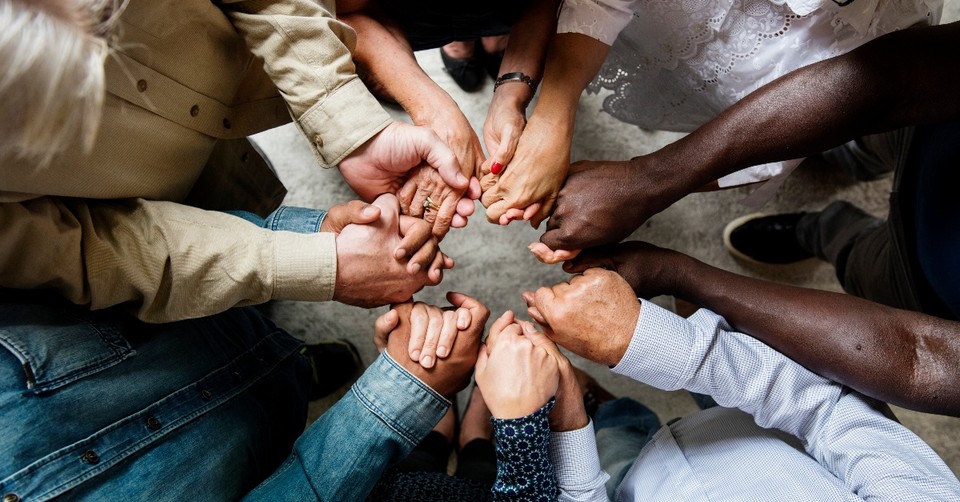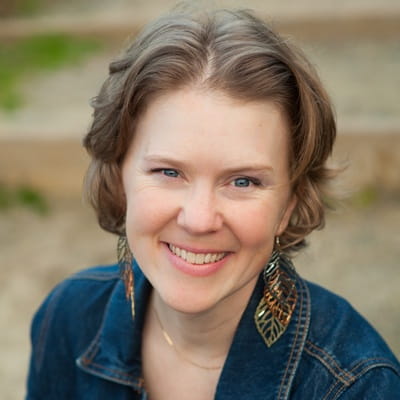4 Things I Got Wrong about My God-Given Purpose

My old friend Pedro leaned against my kitchen counter, drink in hand, and asked me a question I knew I should be able to answer.
“How is God using you these days, Heather?”
I stared at him, a sudden knot in my throat. I did not know.
I’ve always been a doer, an achiever, a planner. But having kids had made it harder to serve, and pursuing new ways to ‘use my gifts’ exhausted me.
In my twenties, I had assumed the right ministry role would give me my One True Purpose. But it didn’t work like I’d hoped—and then I got pregnant. Pedro’s question showed me I had stopped believing God could use me for anything important.
There in my kitchen, I felt shame. Had I really given up hope?
Six years later, my old shame makes my heart hurt. At the time, I didn’t give myself credit for how I already served God. I couldn’t recognize God’s purpose in my ordinary life because I didn’t really understand what purpose was. I couldn’t see it, even though it was right under my feet.
Here’s what I got wrong about finding my purpose.
1. I thought "purpose" was a fancy destination, not a long, dusty journey.
For most of my Christian life, I assumed finding my purpose was like a cosmic job search. I should put together a mental resume and seek out job openings (ministry or service opportunities) that fit my profile. When I landed a “purpose,” I should keep it for life.
But like the modern job market, purposeful living isn’t that straightforward. To wit: when I had kids, I didn’t have time or energy for “ministry.” I barely had energy to wash my hair.
But God created babies, and post-partum recovery, and parenthood. God created the aging parents we care for, is unsurprised by our mental or physical health problems, and pays attention when we move to new states.
God didn’t design our purpose to fit only one stage of life.
In truth, our purpose is an ever-evolving, multifaceted apprenticeship to Jesus, not a single, clearly defined role that lasts forever.
I’ve found great comfort in realizing that the ebbs and flows of my life are both modeled in Scripture (wandering the desert, anyone?) and reflected in nature (the cycles of tides, moons, and even my own body.) I’m on a long journey towards God’s kingdom, not parked ‘til retirement in a cosmic cubicle.
2. I thought "purpose" would be prestigious, but I’ve often found it in the mundane.
Can I say something that I really wish weren’t true? Feeding kids, doing laundry, and changing diapers has been part of God’s purpose for my life.
Yes, sure, yadda, yadda, yadda. But mostly, I don’t want to hear it.
Honestly, I got tired of changing diapers. I love my kids, but the idea of childcare being my life’s main purpose makes me want to poke my eyes out.
Your mundane, purpose-driven but less-than-loved tasks might look different than mine—making peace with singleness, caring for an elderly parent, or enduring financial hardship. We all live ordinary lives with ordinary, necessary, but not-fun challenges.
I’d really, really like my purpose to involve work that’s a little bit fancier and prestigious. (I wouldn’t say no to a generous salary, either.)
Let me be clear: God has also used my ambition, my gifts (writing, like I’m doing now), and my intelligence to form my purpose, in a very important way. I would not be a whole or complete person if He did not.
But if I’m really honest, the resurrection-changes that have freed me to live as a beloved child of God have come in some hidden places: patiently playing blocks with my toddler, pursuing loving honesty with my husband and parents, persevering through post-partum depression.
My point is this: it is a mistake to assume that our purpose is only over there in fancy-land, without looking around at the loving and intentional work we have to do right here. We must seek our purpose in the wider world and through the very crucial work we do at home, by ourselves, or to care for other people.
Mundane, ordinary life might not get accolades or recognition. It is not the only way God calls us to serve. But it can transform our souls—and others’—for eternity.
3. I thought ‘purpose’ was deadly serious, but it's brought me deep joy.
Being a bit of an over-achiever, type A, perfectionistic person, I tend to assume that if something is good for me, it should probably be hard, uncomfortable, and tiring. Nose to the grindstone, people! No shirking!
But we serve a God that, according to the Westminster Catechism, created us to enjoy Him forever. My workaholic mindset isn’t God’s plan.
Serving God is ultimately pleasurable. Seeking his purpose should bring us deep joy.
That does not mean it’s a walk in the park; we will endure hardship, work humbly at thankless tasks, and be braver than we prefer. But if our purpose doesn’t, on the whole, make us alive, something is terribly wrong.
This might seem to contradict the previous point. Ordinary, daily life (like being up with a newborn) can be mind-numbingly difficult.
Still: with my second baby, (and without the postpartum depression that I did not recognize or treat after my first birth), hard work and sleepless nights felt deeply right. I groaned, but I knew I was where I needed to be.
If your life feels dead, if anxiety, or exhaustion or bitterness overwhelms you, get serious, even professional help. Ordinary hard work lit by God’s purpose can be extraordinarily satisfying. Bitterness, rage or mental illness, however, is a sign your foremost purpose is to heal.
4. I thought finding "my purpose" was up to me, but God brings purpose to our lives.
If “purpose” is a job search, then I could definitely take charge. I’d seek the proper education, credentialing, and contacts. I’d apply for the position, I’d do the work, and I’d get darn good performance reviews.
This is nothing like how God works out his purpose in our lives.
God creates in us every gift and ability that allows us to be useful. His Spirit gives us bravery, wisdom, and fortitude. He shepherds and guides us. We can do nothing apart from His power.
Our Job Within God’s Purpose
So what is our job?
Our job is to yearn. To notice when we’re stuck and intentionally seek help. To pay attention, to ask, to seek, to knock. To be curious about next steps. To have eyes to see God’s purpose in our laundry, in our neighborhood committee, in our commute, and in our art, in our ministries and jobs.
We might get muddled about our direction, get lost, feel discouraged, and make mistakes. It’s okay if you don’t know exactly where you fit. It’s okay to cry out in frustration, to ask for wisdom and help. Despite our poor eyesight and weakness, God can reveal his Kingdom—right in front of our nose.
As the poet Gerard Manley Hopkins sang, “The world is charged with the grandeur of God.” Living awake to His majesty is our deepest, most true purpose.
Photo Credit: ©iStock/Getty Images Plus/Rawpixel

Originally published July 31, 2017.







